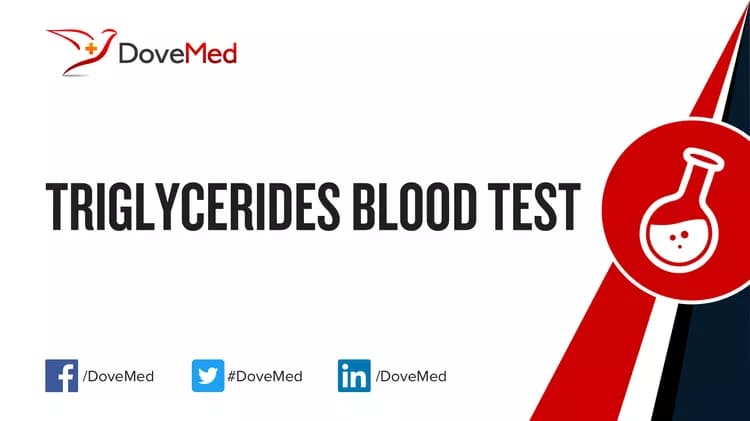What are the other Names for this Test? (Equivalent Terms)
- TGs Blood Test
- Triacylglycerides Blood Test
- Triacylglycerols Blood Test
What is Triglycerides Blood Test? (Background Information)
- Triglycerides are fat or lipid molecules used by the body mainly for energy storage. 95% of the adipose tissues are composed of triglycerides
- The structure of triglycerides, or triacylglycerols, is that of a glycerol backbone connected to 3 fatty acid tails. There are many kinds of triglycerides, depending on the length of the fatty acids attached to glycerol
- Triglycerides are referred to as saturated, if the carbons comprising the fatty acid tails are joined together only by single bonds. The presence of double bonds between carbons of the fatty acid tails adds constraint to the molecule and makes it “kinked.” If only one double bond exists, the molecule is monounsaturated; if more than one exists, it is called polyunsaturated
- Because of the kink induced by the double bonds, interactions between unsaturated triglycerides are less effective than those of saturated triglycerides. Thus, saturated “fats” such as butter are usually solid at room temperature, whereas unsaturated “oils” such as olive oil are liquid at room temperature
- Triglycerides do not readily dissolve in water, and because blood is mostly composed of water, triglycerides in the blood stream, must be transported using protein carriers. Among these are chylomicrons and very-low density lipoproteins (VLDL)
- Any problem in triglyceride transportation is linked to an increase in the viscosity, or thickness, of blood, and to a buildup of plaque along vessel walls
- A Triglycerides Blood Test is a test to assess the level of triglycerides in circulation. It is used as part of a complete lipid profile, to assess the risk of heart disease and proper metabolic functioning
What are the Clinical Indications for performing the Triglycerides Blood Test?
Following are the clinical indications for performing a Triglycerides Blood Test:
- As part of a complete lipid profile
- History of heart disease in the family
- Heart attack
- Fatigue
- Gout
How is the Specimen Collected for Triglycerides Blood Test?
Following is the specimen collection process for Triglycerides Blood Test:
Sample required: Blood
Process: Insertion of a needle into an arm vein.
Preparation required: Fasting is necessary, 12 hours prior to the test.
What is the Significance of the Triglycerides Blood Test Result?
The significance of Triglycerides Blood Test is explained:
- High triglyceride levels may indicate:
- Excessive intake of dietary fats
- Sedentary lifestyle
- Diabetes
- Hypothyroidism
- Alcohol use
- Liver disease
- Pancreatic disease
- Low triglyceride levels may indicate:
- Congenital alpha-beta-lipoproteinemia
- Malnutrition
- Hyperthyroidism
The laboratory test results are NOT to be interpreted as results of a "stand-alone" test. The test results have to be interpreted after correlating with suitable clinical findings and additional supplemental tests/information. Your healthcare providers will explain the meaning of your tests results, based on the overall clinical scenario.
Additional and Relevant Useful Information:
- Certain factors influence the results of this test. These include age, pregnancy status, smoking, and alcohol consumption
- Overweight conditions and obesity are directly related to triglyceride levels. They are the number one cause of preventable deaths in the world
Certain medications that you may be currently taking may influence the outcome of the test. Hence, it is important to inform your healthcare provider, the complete list of medications (including any herbal supplements) you are currently taking. This will help the healthcare provider interpret your test results more accurately and avoid unnecessary chances of a misdiagnosis.
Related Articles
Test Your Knowledge
Asked by users
Related Centers
Related Specialties
Related Physicians
Related Procedures
Related Resources
Join DoveHubs
and connect with fellow professionals


0 Comments
Please log in to post a comment.